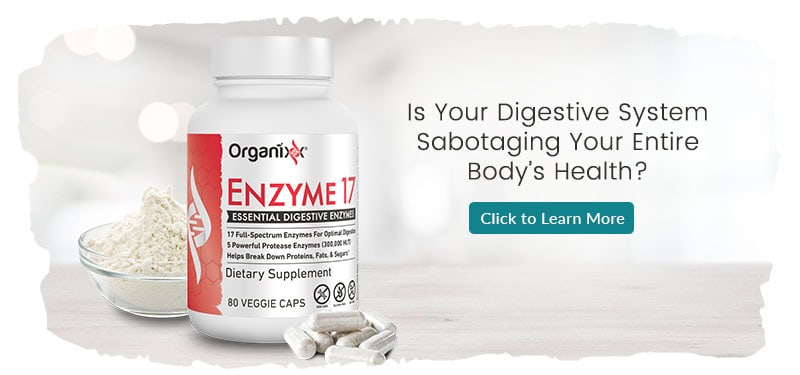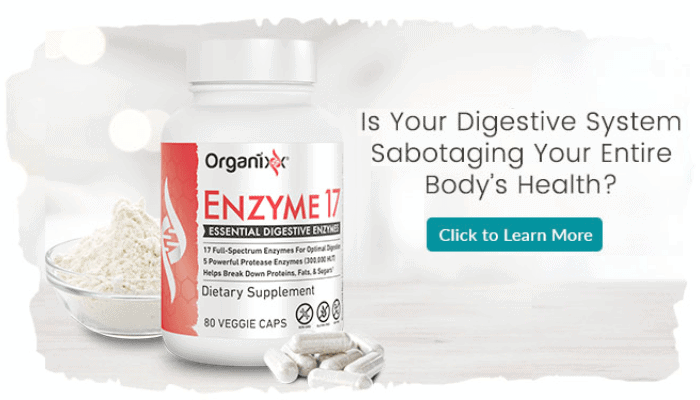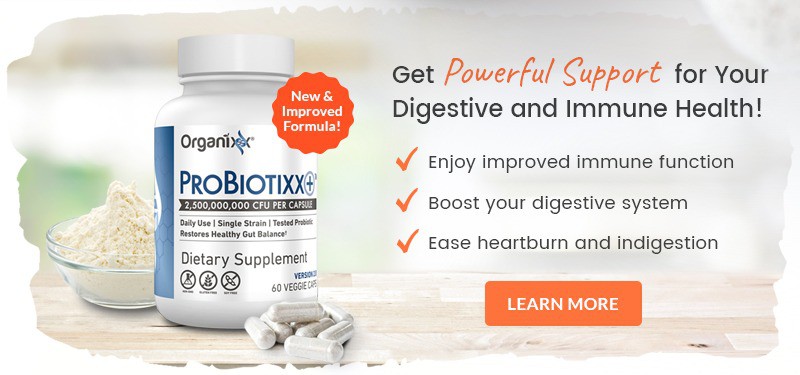Video Transcript:
Today, I want to talk to you about how to optimize health for men, and this is a really important topic because a lot of men rely on their partners, their spouses, to give them advice and tips on what supplements to take. Often, we as women in our households are supplying our gentlemen with supplementation.
Support Your Healthy Habits
So today, I’m going to offer some advice for any of you ladies who want to power up and support your male partner’s health and enhance their wellness, as well as any of you gentlemen looking for some basic guidance to help support your overall health. And this is going to really support and supplement any of the good, healthy lifestyle habits and maybe current lifestyle changes you’re implementing where you’re eating healthy foods, maxing out your sleep, and lowering your stress.
Address Nutritional Deficiencies
So, the first and most important thing for men to consider taking is a whole-food, plant-based supplement, and this is really, really critical because the multivitamin that has a good amount of bioavailable, plant-based nutrition can really create a foundational piece where you get a lot of the daily requirements of your nutrients, and a lot of health issues, when we look at aging and degeneration within the body, a lot of our problems or challenges ultimately come back to nutrient deficiencies.
So, I’m very excited to recommend the Multi-Vita-Maxx. This is our plant-based, powerful multivitamin. You’re going to get all of the required daily requirements of both your vitamins as well as key minerals like magnesium, and zinc, and chromium, which is really important for gentlemen looking to balance their blood sugar levels. I also like that this is a fermented form of a multivitamin, which enhances the bioavailability of this nutrition.
Get the Gut Healthy
Now, the second thing that’s really important is for gentlemen to support their gut health. We have a term that we reference to the balance of bacteria in the gut, and we call it the microbiome. That’s an assortment of bacteria that we want to be balanced and we want it to be very plentiful and very similar to like a coral reef – we want to have multiple types of bacteria that create this kind of rainbow cascade of good bacteria that balances our body.
And in one of my masterclasses, I host masterclasses every month, I have one of my masterclasses that digs into mastering your gut health and ultimately supporting your gut microbiome. One of the things I share in that class is that the microbiome, our microbes, the actual bacteria, enhances our hormone levels and it can actually influence our immune system and it can influence the inflammatory response in the body.
So, for any gentlemen who might be dealing with diabetes, or gout, or liver imbalances, maybe elevations in cholesterol and triglycerides, or even gentlemen who might be dealing with prostate imbalances, it’s really important for us to look at adding a good probiotic.
And we have ProBiotixx+, which is a very powerful form of L. plantarum, which we know is one of the super plentiful bacteria types that can help culture and rebalance your gut. So, making sure you get a good probiotic can be very beneficial in enhancing your overall gut health, which can balance your digestive grievances like IBS, or CIPO, or gas and bloating after consuming a meal, but it can also power up our brain health and balance our hormones.
Combat Inflammation to Prevent Illness & Disease
Now, another thing that is really important for men is to address inflammation. Ultimately, inflammation is the root of all illness and disease within the body, and systemic inflammation is something we need to combat. And signs or symptoms of inflammation can be swelling, it can be elevations in enzyme levels like our ALT and AST – those are labs that identify enzyme levels in our liver. We will present with hormone imbalances. Men will have elevations in prostate markers like PSA will be elevated or experience benign prostatitis. Other individuals might experience heart disease. And so rooted behind all of these illnesses and diseases is ultimately inflammation. Our cells, our cytokine process is overwhelmed and heightened, and there are really two ways that I use some supplementation here to combat inflammation.
The first thing is magnesium, a very well-balanced, multi-magnesium, like we have Magnesium 7. This can be really helpful in minimizing inflammation that gentlemen experience in their joints. Maybe you have joint pain, or osteoarthritis, or rheumatoid arthritis, and even gout.
Swelling is a byproduct of inflammation. So, if you notice you’re holding more fluid, Magnesium 7 is what I recommend. I’m kind of an expert in the swelling category, I’m specialized in lymphatic therapy, which is all about moving the excess fluid in the body. We use magnesium to flush fluid out of the body and it will flush fluid through the kidneys and bladder and you might notice a reduction in fluid retention of upwards of three to five pounds on the scale. So, Magnesium 7 is great for lowering your inflammation levels.
Address the Reduction in Stomach Acid & Enzymes As We Age
And then, last and final is at the age of 30, for all of us, men and women, we have a reduction in stomach acid levels and we start to notice that the pancreas is not producing enough digestive enzymes. That ends up leading to digestive grievances, imbalances in our digestive process, an inability to digest our food, assimilate the nutrients, and power up the body. That can also lead to constipation, and leaky gut, and gut-brain, gut-heart, gut-thyroid imbalances.
So, one of the best ways to combat this lowered stomach acid level and a reduction in digestive enzymes that your pancreas is producing – which by the way can often be an undercurrent for diabetes – Enzyme 17 is something you want to add to your daily practice and this is something where you take two of these supplements, about 20 to 30 minutes before you consume a meal.
Enzyme 17 is one of the most plentiful enzyme blends that is out there on the market. It’s one of my favorite products we have here at Organixx, and it can help your body digest and break down the assorted macro and micronutrients that you need to support your body.
Additionally, here is a bonus tip that I tell all my patients. If you are dealing with any inflammation, or maybe you have digestive imbalances you notice. Maybe there are food particles that you’re passing in your bowel contents. Enzyme 17 is something you can take at night on an empty stomach and it will help reduce the digestive grievances and will help clear up systemic inflammation.
So, that’s a little bonus tip, but overall, these four items are going to be very helpful in supporting overall men’s health, and are basic foundational elements that every gentleman should add to his daily supplement regimen. So, that’s my tip for you and I hope you share that with any of the gentlemen in your life. And gentlemen, if you have any questions about health and wellness, make sure you comment and hit that reply button and I will be taking questions and answering them in future videos.
Organixx Enzyme 17 contains a whopping FIVE kinds of powerful protease enzymes in combination with one of the most advanced enzyme blends on the planet. It’s scientifically designed to help your body break down and process nutrients for better absorption, digestion, and overall health.

Video Transcript:
Marina asks, “What is the best advice for gut health? Supplements, foods to include, foods to avoid, how to identify symptoms of gut imbalance, best probiotics, more information on SIBO and other gut issues that can happen?”
Identify Your Gut Symptoms
That’s an excellent question, Marina. First, I want to kind of break this down cause we have a lot of questions here. The first, most important thing for addressing and assessing if you have any gut imbalances or gut health challenges is to identify gut symptoms – that could include things like constipation. Also, sometimes a situation where you may have constipation and diarrhea – or IBS, that’s a traditional kind of symptom. Bloating, gassiness, foul-smelling gas. You can also have different changes in the color of your bowel movements, and that can also lead to changes in the way your body is breaking down foods. If you find that there are food particles in your bowel movements, then those can be identified symptoms of imbalance.
Test for Gut Imbalances
Then we can also look at labs. Lab values in terms of liver enzymes and pancreatic enzymes, if those are elevated, will indicate we have some imbalances within your gut. Then I have a lot of patients who will actually do stool sample testing. That gives us an idea of certain bacteria types that might be in overabundance in the digestive process. There’s a lot of different symptoms to identify.
Trigger Foods to Avoid
Now, you asked about foods to avoid, and that is an excellent question because there are a lot of foods that can trigger, for some folks, imbalances within their gut health. The first, most common food that you want to avoid if you maybe have some of these symptoms are foods that are rich or dense in gluten. Gluten can be an allergen and it can cause a reactivity within the digestive system, the digestive lining, and your immune response can get heightened.
Over time, by eating and consuming gluten-dense foods, we actually will have individuals present with leaky gut syndrome, where the leaky gut, the gut lining, the single-cell lining actually breaks open and food particles, they become introduced into the bloodstream that can trigger autoimmune challenges.
The second most common food to avoid are dairy products. Anything that is made from cow’s milk or heavily processed dairy, I recommend avoiding that. The third thing I recommend avoiding are rich, sugar-dense foods, processed sugars. Sugar is not great for your digestive system. It supports unhealthy bacteria growth. It feeds the yeast and the Candida as well as other bacteria types that exist in the digestive system.
Similarly, removing alcohol, even caffeine from your diet, and then also avoiding high-processed foods. Those are foods that are in the middle of your shopping market or supermarket. Shop around the perimeter and you’re going to be making sure you avoid some of those foods.
Foods to Include in Your Diet
Foods to include, now this is really critical. The average American diet usually has about nine to 10 grams of fiber in its full content throughout the day. Ideally, a healthy digestive process needs 35 to 40 grams of fiber. Fiber-dense foods, reaching for those adding up and moving to 30, 35, and 40 grams of fiber will greatly improve the transit time. Fiber is also going to help massage and support the digestive lining, so that’s really important.
The other very beneficial food or group of foods to add to your diet that enhances your digestive process are magnesium-rich foods. I love to get my fresh greens – spirulina is very dense in magnesium, nuts and seeds also are going to be very dense in magnesium. Magnesium will hydrate the bowel, it’ll articulate and pull in excess fluid in your body, it’ll flush it into the digestive process, helping move and support the bowel transit.
I also love adding ginger. Ginger also supports that flow of excess fluid and pushing it into the digestive process. And then fermented foods – kimchi, nut-based yogurts and kefirs, and even sauerkraut. There’s a lot of great things you can do at home.
Supplements to Add to Your Daily Regimen
Now, the fourth recommendation I have are supplements. There are some really great organic supplements that you can add into your regimen on a daily basis. Enzyme 17 has the complete density of digestive enzymes to help your food be processed, broken down, and assimilated in a healthier way than without, and the best way to take enzymes, digestive enzymes, is consuming the enzyme about 20 to 30 minutes before you consume a food. I love that.
Now, also the question was, talk to me a little bit about best probiotics. Well, the good news, friends, is Organixx has their ProBiotixx. That is very, very beneficial in supporting a super-potent probiotic, it’s kind of considered the super-probiotic that will help enhance and support the good, healthy bacteria balance in your digestive system.
Combining foods where you get the density of fiber, that’s prebiotics, and the fermented foods, plus probiotics is going to give you a rich blend of probiotic support in your digestive system. If you’re in need of repair or you maybe have some lining imbalances or leaky gut, I recommend adding collagen. Collagen is very supportive of repairing and supporting the single-cell lining, the structures of our small intestine. That tends to be where we have the biggest grievances or the largest grievance of imbalance, where we have the leaky gut causing challenges, where individuals have inflammation systemically, and also autoimmunity kicked up from the inability for the digestive process to heal itself. Sometimes you need external resources. Collagen is beneficial.
Colostrum Therapy to Fortify Good Bacteria
Another recommendation is a therapy that I have specialized in, which is colostrum therapy. Colostrum therapy really re-cultures and fortifies the digestive process and brings back in certain growth factors that maybe have been lacking, or maybe you never received because you weren’t breastfed or maybe were born via cesarean section. In early infancy, we get some of these critical pre-digestive health-balancing nutrients. If you lack those or have taken an assortment of rounds of antibiotics, you’re going to need colostrum therapy to really fortify and repopulate extinct strains of bacteria.
I hope, Marina, that that was helpful for you, and please keep us posted on your journey.
Organixx Enzyme 17 contains a whopping FIVE kinds of powerful protease enzymes in combination with one of the most advanced enzyme blends on the planet. It’s scientifically designed to help your body break down and process nutrients for better absorption, digestion, and overall health.

You probably heard it a thousand times from an adult family member at the dinner table: “Slow down and chew your food!” Odds are, as a kid, you probably didn’t listen to them. But it turns out that those pesky adults were offering some sage advice when it comes to how to get the most from food nutrients as well as how to avoid the “gastric upset” that effects a whopping 70 million people worldwide.
Chew Your Food: The First Step in Digestion

Why is chewing your food so important for digestion anyways? After all, that’s why we have stomach acid, right? Actually, the act of digestion – a process that our bodies do automatically – is a very complex process. Step one is to chew your food.
The importance of proper chewing is two-fold. First of all, when chewing food, you break down large food particles into smaller ones so they can be digested more easily by the rest of the system and so your body can extract the most nutrients from them. Coated with lubricating saliva, small bits can more easily make their way down the esophagus and into the small intestine.
The smaller the particles you swallow, the more your small intestine can absorb nutrients from them as they make their way down.
In fact, when you do not chew your food enough, some may go undigested. This can be a major problem since parts of this undigested food may eventually enter your bloodstream through small gaps that may exist between the enterocyte cells of the gut lining.
Experts in the gut-immune connection have been making the link for years between “Leaky Gut” (the presence of these gaps) and a whole host of disease conditions, including autoimmune disease, which currently affects one in five Americans.
Large particles that move slowly down the digestive tract also become fuel for pathogenic (“bad”) bacteria and fungi. The longer food particles lingers, the more they have the possibility to become catalysts for putrification, which can produce neurotoxins in the gut.
The second advantage of chewing your food thoroughly is that salivary glands are activated in your mouth when you chew. Saliva contains important digestive enzymes such as lingual lipase, which breaks down fats, and amylase, beneficial in breaking down sugars. When you chew for longer, these enzymes have the time to do their job.
Dr. Richard Mattes, professor of nutrition at Purdue University and author of a 2013 study on the subject, says that chewing your food more can even give you more energy:
“Particle size [affects the] bioaccessibility of the energy of the food that is being consumed. The more you chew, the less is lost and more is retained in the body.”
How Many Times Should You Chew Your Food Before Swallowing?
So, just how many times should you chew your food? It turns out there’s not one number for every food, and it really depends on what you are eating. A piece of steak needs to be chewed far longer than a bite of watermelon, for example.
However, if weight loss is a goal, a recent Chinese study published in the American Journal of Clinical Nutrition recently reported that a person needs to chew food at least 40 times per bite. Most experts say to simply chew your food until it has lost all its texture or liquified in the mouth.
11 Do’s & Don’ts for Getting the Best Digestion” to “How To Improve Digestion – 11 Tips

Chewing your food properly is by far the most important action you can take to improve your digestion right now.
Here are 11 other “Do’s” and “Don’ts” that will help make mealtime a pleasure, not a pain:
#1. DON’T drink lots of water with a meal or right after.
Taking sips of a beverage is fine during a meal but try to keep it to a minimum. Consuming lots of liquids while eating or right after a meal can adversely affect the digestive process by diluting vital digestive enzymes and stomach acid that help to break down food.
#2. DON’T have a cup of coffee right after a meal.
Experts are split as to how caffeine can affect digestion both positively and negatively. Caffeine is a diuretic, so coffee can speed up digestion. Sometimes a little cup of joe can be helpful if you need a little help “getting things moving.” On the other hand, if you drink too much coffee immediately after a meal, it may speed up digestion so much that your body does not have time to extract all the nutrients it can from the food you just ate.
Coffee is also highly acidic. If consumed during a meal or right after it, it can lead to heartburn for sensitive individuals. If you crave a hot beverage after a full meal, try a cup of green or herbal tea instead.
#3. DON’T eat a lot of fruit or processed sweets directly after a meal.
A little fruit after a meal may beneficial if you do not have a sensitivity. But fruit in general is digested very fast by the body. If you consume a lot of it right after a meal, then it may sit on top of the other foods you just ate and ferment, which can cause bloating, gas, and pain.
In addition, eating processed deserts like cakes or ice cream and high-sugar beverages like sodas may make it harder to normalize blood sugar levels, which is your body’s main objective right after a meal. If you must have a sweet after you eat, try a small piece of fruit or a small square of dark chocolate.
#4. DON’T participate in strenuous exercise right after eating a big meal.
The body’s main objective after a meal is to channel the most amount of blood it can into the gastro-intestinal tract via the circulatory system to facilitate digestion. Vigorous exercise directly after a meal can bring this process to a halt. This may not only affect digestion, but bloodflow within the circulatory system as well.
#5. DON’T take a hot shower or bath right after eating.
According to popular nutrition expert Kimberly Snyder, CN, when you take a hot bath or shower, your body temperature naturally increases. When this happens, the blood that would normally be used to aid in digestion will instead be pulled towards the skin and extremities for core temperature regulation. This will slow digestion down.
#6. DON’T go to sleep right after eating.
Again, this is because of blood sugar, which tends to spike after a meal. The body will need a few hours after eating to normalize blood sugar levels. Sleeping may increase insulin dependence. In fact, some experts warn that getting into the habit of taking a “siesta” right after eating could promote insulin resistance, a precursor to diabetes.
#7. DO consume gut-friendly fermented foods with every meal.

Eating fermented foods with your meal can actually help your body digest. This is because foods like raw sauerkraut have the first part of digestion covered; they already contain a hearty number of digestive enzymes as well as a plethora of beneficial bacteria that can help your body absorb essential nutrients.
Eating fermented foods and taking fermented supplements can also help reduce symptoms of Irritable Bowel Syndrome, gluten intolerance, and allergies/asthma by boosting the immune system.
#8. DO have veggies with every meal.
The first reason why this is important is a no- brainer. The more green leafy and other kinds of low-starch veggies you eat in general, the better – and meals are a great way to get one or two servings of organic steamed broccoli or green salad in during the day.
Also, vegetables are loaded with vitamins and minerals and are able to complement any kind of meal, whether it is protein-rich or carb-rich. The most important factor about vegetables for digestion is that raw or slightly steamed veggies can retain their enzyme and fiber content, which helps everything move along and the most amount of nutrients be absorbed.
According to Dr. Mattes, “When your total diet is higher in fiber, there’s a greater loss of fat. Fiber binds with fatty acids to create energy sources in the body.”
#9. DO take a leisurely stroll after a meal.
While vigorous exercise may hurt the digestive process, research confirms that a short stroll after a meal can aid digestion and normalize blood sugar levels. A 2009 study conducted by researchers at Old Dominion University in Norfolk, Virginia, found that a 20-minute walk about ten to fifteen minutes after dinner helped Type 2 diabetics regulate their blood sugar levels.
Another study published in the journal of the American Diabetes Association found that for overweight and normally sedentary older adults, a 15-minute walk after each meal helped to regulate blood sugar levels better than a 45-minute walk first thing in the morning.
#10. DO use probiotics and digestive enzymes.
These days, because of lifestyle, toxins and overall stress, almost everyone has some sort of gut bacteria imbalance that can periodically cause mild to moderate discomfort. And for thousands of people, infusing good nutritional and mealtime habits into one’s life is not enough to right the imbalance that may lead to other disease conditions.
Many experts suggest that daily probiotic intake is as important in this toxic, stress-filled world as drinking enough quality water. Probiotics are beneficial for those over 60, for women in general, and an absolute must for those who are on the journey of healing digestive conditions. This is because they infuse the body with millions of beneficial bacteria that are vital for restoring balance over time.
Supplementation with digestive enzymes is also a must if you are dealing with Leaky Gut, you eat a lot of cooked or processed foods, or you are over 30 years of age. Remember that without enzymes, dozens of other mechanisms in the body – including the absorption of key nutrients – cannot occur.
The best way to incorporate digestive enzymes into your daily routine is to find a source that is organic, of high quality and contains several enzymes in one easy-to-take supplement.
#11. DO S-L-O-W down when you eat.
This may go without saying; if you are chewing your food properly, this automatically helps you to slow down while eating. But slowing down in general at mealtime has its own advantages as well.
First, you can enjoy your food and the experience you are having while eating more. Unplugging from work, TV, and electronic devices and choosing to spend a few minutes focused solely on eating can also help to slow your whole body down, potentially putting it in to a healing mode through eliciting the “relaxation response.”
A good strategy to follow for slowing down while eating is to take smaller bites of food and deliberately chew in a slow and steady way, taking time to savor the flavors and textures of the foods you are eating.
It’s amazing how sometimes the simplest of actions can produce the most significant results over time. Just like mom said, chewing your food properly has many cascading benefits for digestion. But this is just the tip of the iceberg when it comes to actions you can take to help your body’s digestive processes.
If you, like so many others, suffer when you eat with bloating, cramping, heartburn and overall pain, you may benefit by adding some or all of these tips to your next mealtime experience.
Organixx Enzyme 17 contains a whopping FIVE kinds of powerful protease enzymes in combination with one of the most advanced enzyme blends on the planet. It’s scientifically designed to help your body break down and process nutrients for better absorption, digestion, and overall health.

You may have heard lots of talk recently about the importance of having a “healthy gut.” This is an emerging area of research and scientists are continuing to discover precise reasons why the gut (aka gastrointestinal system or GI tract) is one of the most important biological systems in the human body.
[Note: Terminology can vary when talking about gut health. For instance, intestinal flora (or gut bacteria) is often referred to as “microbiota,” and the biological system comprising these trillions of organisms is called your “microbiome.” In other words, you have trillions of microbiota in your microbiome, which reside in your GI tract, or gut. Another common term used to describe the beneficial/good gut bacteria is “probiotics.”]
Here are just a few of the important discoveries researchers have made about the gut:
- The majority of nutrient and water absorption takes place in the gut.
- Around 20 hormone processes are connected to or have processes in the gut.
- The GI tract contains more than 1 billion nerve endings and has more surface area than that of your external skin. These neurotransmitters, known as the enteric nervous system (ENS) are so involved in your body’s processes, that scientists have nicknamed the gut the “second brain.”

- There are over 100 million neurons in the ENS; more than the spinal cord, or the peripheral (outside of the brain or spinal cord) nervous system.
- The brain doesn’t need to operate the GI system. The “second brain” can act independently. In some cases the ENS sends signals to the brain, not the other way around [1].
- The “gut-brain axis” describes the influence the gut, microbiome, and ENS have on the brain, including both emotional and cognitive functions [2].
- The gut contains 70% to 80% of your body’s immune cells.
- The GI microbiome prevents colonization by potentially pathogenic (“bad”) microorganisms, provides energy for the gut wall from undigested food, and regulates the mucosal immune system [3].
- GI microbiota contribute to energy homeostasis (stability), prevent mucosal infections, and, importantly, contribute to the maintenance of an intact GI barrier, which seems to be closely related to infectious, inflammatory, and allergic diseases [4].
- Any disruption to the harmony of the GI microbiome affects the function of the host’s (your body’s) defense systems.
Can Your Gut Health Impact Your Mood?
Probably the most surprising effect the gut-brain axis and microbiome have on your body is that to do with mood [5].
Science has long recognized much of our supply of neurochemicals originates in the intestines. Most of your serotonin is made there [6], as well as approximately 50% of dopamine.
However, it’s only recently that serious consideration has been given to the role our microbiota (the bacteria in the gut) play in creating those chemicals [7,8].
A 2015 story in The New York Times shares interviews with and quotations from several scientists on the cutting edge of this area of research, including one of the first to propose the neurochemical aspects of the gut-brain axis − Mark Lyte, a microbiologist at Texas Tech University Health Sciences Center [9].
Lyte and other researchers have found that among the many chemicals secreted by our microbiota, some are identical to the substances “used by our neurons to communicate and regulate mood, like dopamine, serotonin, and gamma-aminobutyric acid (GABA). These, in turn, appear to play a function in intestinal disorders, which coincide with high levels of major depression and anxiety [10].”

For example, in 2014 a group of Norwegians studied the feces of 55 people, noting depressive patients had certain bacteria in common.
It’s due to this type of research that it’s becoming more commonly accepted that anxiety, depression, and several pediatric disorders, including autism and hyperactivity, are linked to gastrointestinal abnormalities [11].
It was once thought that stress caused the immune system to be weakened, which in turn affected how bacteria in our microbiome behaved. Now, somewhat revolutionarily, research indicates that certain bacteria actually cause stress, which then impairs the immune system.
The truly exciting aspect of all this science is work that Lyte and his peers are doing in the realm of reversing disorders. For instance, using the secretions of certain bacteria to relieve anxiety and elevate mood by putting the microbiome back into harmony—proposing probiotics (beneficial, life-giving organisms) can be tailored to treat psychological disorders. These are somewhat flippantly being referred to as “psychobiotics [12].”
One study carried out in Sweden found that mice raised without microbes were far more active outside. Not only that, the microbe-free mice were observed to have less anxiety and be more daring overall.
Serotonin is a known factor in mood, anxiety, and depression, to name a few of its functions [13,14]. The connection to the manufacturing and the body’s use of this essential chemical (some consider it a hormone) is gaining increasing attention. Or, as a 2015 publication in Behavioral Brain Research stated [15]:
“The brain-gut axis is a bidirectional communication system between the central nervous system and the gastrointestinal tract. Serotonin functions as a key neurotransmitter at both terminals of this network. Accumulating evidence points to a critical role for the gut microbiome in regulating normal functioning of this axis … There is also substantial overlap between behaviors influenced by the gut microbiota and those which rely on intact serotonergic neurotransmission.”
More research is being done to identify the precise processes occurring, but it’s certainly becoming crystal clear… the health of your microbiome is essential for even your mental and emotional wellbeing [16].





